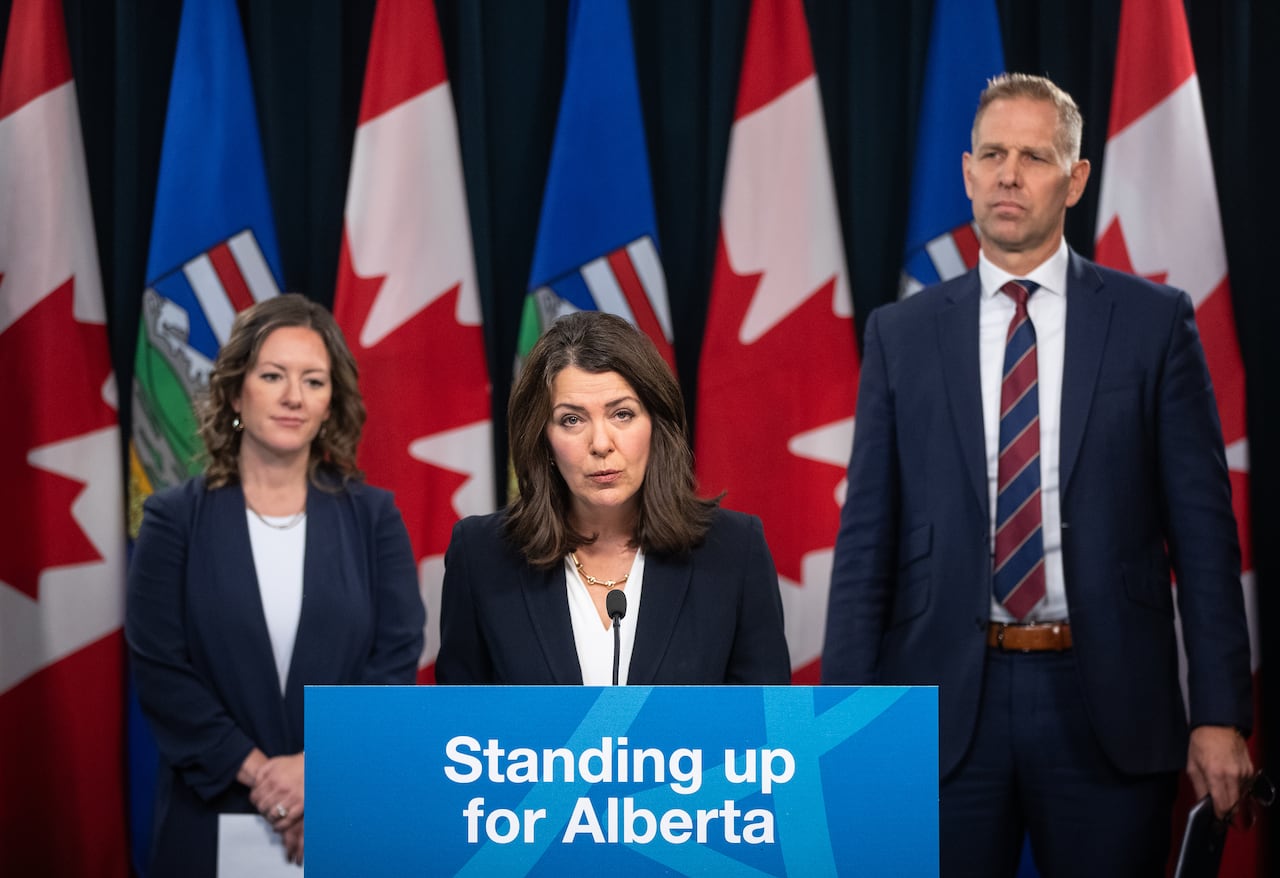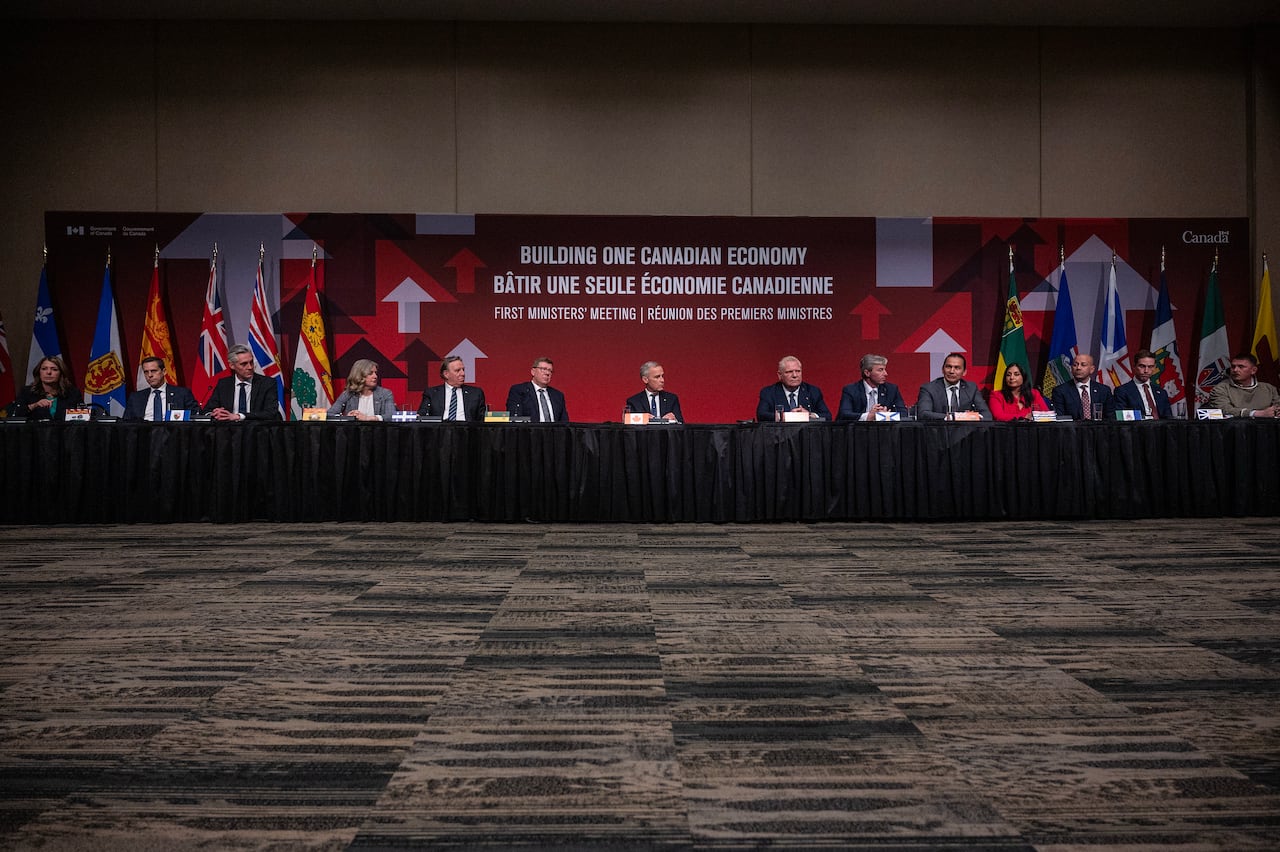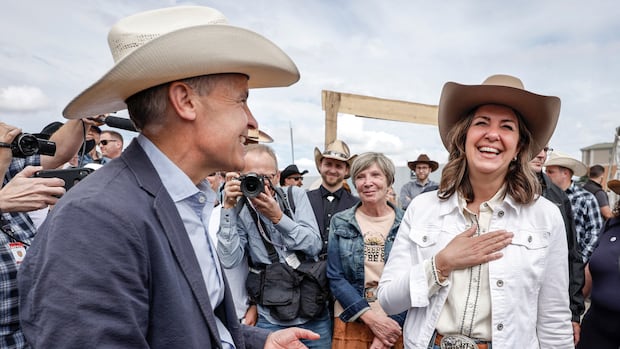Listen to this article
Estimated 5 minutes
The audio version of this article is generated by text-to-speech, a technology based on artificial intelligence.
The Alberta and federal governments are in negotiations to sign a major accord that could reset their relationship.
Both sides have said the aim of the talks is to sign a formal memorandum of understanding (MOU). The Alberta premier’s office has said they hope to ink the deal before the Canadian Football League’s Grey Cup on Nov. 16.
The relationship between the federal government and the province has long been acrimonious, but it had turned toxic for about a decade.
Successive Alberta governments blamed the policies of Prime Minister Justin Trudeau for poisoning relations including changes to the impact assessment legislation, a ban on oil tankers on B.C.’s northern coast, net-zero electricity regulations and draft regulations for an oil and gas emissions cap.
The Alberta premier’s office and a senior federal government source confirmed talks are underway with the goal of ironing out a deal that could reset the relationship.
High-stakes talks
The talks are so high stakes, ministers and sources are reluctant to comment about the state of negotiations, conscious one bad move in public could torpedo discussions.
Even Alberta Premier Danielle Smith and her environment minister, Rebecca Schulz, who are usually quick to jump on any climate policy announcement from the federal government, were silent on social media or remained guarded in their comments after the Carney government outlined its climate strategy in the budget.

The promised Climate Competitiveness Strategy reaffirmed the Carney government’s commitment to some emissions-reduction policies which have stoked the anger of the Alberta government — the enhanced methane regulations and the clean electricity regulations.
While the strategy did not commit to scrapping the oil and gas emissions cap outright, it placed conditions which if implemented would make the controversial policy unnecessary.
That criteria included: deploying carbon capture technology at scale and bolstering the industrial carbon pricing regime which regulates carbon pollution from the oil patch and other large industries.
Smith did release a statement Tuesday evening, but notably the Alberta premier withheld judgment until she said negotiations with the Carney government are concluded by mid-November.
“We will then have a much better idea regarding whether or not the current federal government is serious about repealing or overhauling the various policies and laws that have devastated Alberta’s economy over the past decade and put the very stability of Albertan’s electricity grid at existential risk,” Smith’s statement read.
A Smith spokesperson referred CBC News to a previous statement where the premier said that both parties are working toward an agreement with the federal government that includes either the “the removal, carve-out or overhaul” of federal climate policies Alberta has opposed.
It also mentions that the Alberta government is moving forward as the proponent on a bitumen pipeline to British Columbia’s northern coast. As part of that process it intends to make an application through the federal Major Projects Office.
A grand bargain?
Shannon Joseph, a Calgary-based advocate for natural gas, hopes the November agreement is a sign of a new era. Joseph notes both Smith and Prime Minister Mark Carney are on the same page as they speak about boosting investment and Canada becoming an energy superpower.
“For the first time there is an alignment and understanding that Canada’s economy is in trouble,” said Joseph, chair of Energy for a Secure Future. “We need to attract investment. We need to build more infrastructure. And both Ottawa and Alberta are saying the same thing.”
- This Saturday, Just Asking wants to know: What questions do you have about Mark Carney’s mandate so far? Fill out this form and send us your questions.
Oliver Anderson, who worked closely with the previous federal environment and climate change minister, is skeptical about the chances of a breakthrough.
Anderson said Alberta’s conservative government “has built its brand on opposing federal clean energy policy” and they will “always be happy to fall right back into fighting posture.”
“It’s hard to imagine there are any good-faith negotiations underway. More likely, we’re witnessing delay tactics and a bid to extract maximum concessions from a federal government still trying to make collaboration work.”

If negotiations do succeed, though, it would be a major breakthrough for both levels of government that have spent a significant part of their relationship, even before the Trudeau government, in conflict.
As Smith said after she and her fellow premiers met with Carney in June, there is a “grand bargain” to be had.







